MercoPress. South Atlantic News Agency
Fisheries
-
Saturday, February 7th 2026 - 23:24 UTC
Argentina tightens illegal fishing enforcement, elevating satellite tracking as evidence
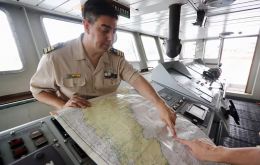
Argentina has tightened its enforcement framework against foreign vessels suspected of illegal fishing inside its Exclusive Economic Zone (EEZ), giving greater evidentiary weight to satellite records and other remote sensors to open proceedings and impose fines, under a new regulation published in the Official Gazette.
Add your comment! -
Monday, February 2nd 2026 - 18:12 UTC
First three weeks Illex squid catches in Argentina considered “encouraging”
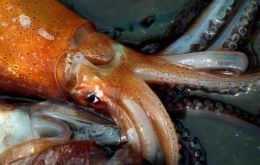
The Illex squid season in Argentina, taking into account catches of the three first seeks of 2026 can be considered, “encouraging”, according to Marcela Ivanovic, head of the Cephalopods’ Program from the Fisheries Research and Development Institute, INIDEP.
-
Thursday, January 29th 2026 - 09:18 UTC
South Georgia opens license application for 2026 toothfish fisheries
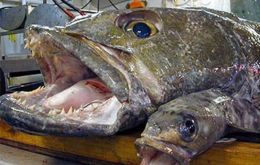
The Government of South Georgia and South Sandwich Islands, GSGSSI has announced the opening of the license application round for the 2026 South Georgia & the South Sandwich Islands toothfish fisheries.
-
Thursday, January 22nd 2026 - 01:55 UTC
Falklands, Minister Doughty reaffirms support for the Islands and the Great British family

”We remain strong defenders of the Falkland Islands as part of our Great British family globally and we continue to work very closely with them on a range of trade and tariff issues, said Foreign Office minister for Overseas Territories, Stephen Doughty during a question time in Parliament.
-
Friday, January 16th 2026 - 10:55 UTC
High Seas Treaty enters into force, ushering in a new era for ocean protection

The High Seas Treaty, also known as the Global Ocean Treaty, enters into force on Saturday, marking “a historic achievement in ocean protection” and the start of a new phase in global ocean governance, EFE reported.
-
Thursday, January 15th 2026 - 09:04 UTC
Falklands, Legislative Assembly portfolio assignments
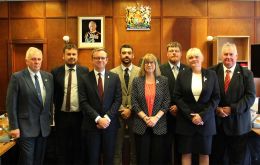
The Falkland Islands elected Legislative Assembly has agreed a revised portfolio system for the 2025-2029 term. Following the December 2025 General Election, Members reviewed the structure to improve focus, and align related policy areas.
-
Friday, January 9th 2026 - 20:12 UTC
EU gives nod to Mercosur FTA despite fragmented France's rejection

A qualified majority of European Union (EU) member states voted Friday to approve the landmark Free Trade Agreement with the Southern Common Market (Mercosur). The decision marks a historic geopolitical shift, positioning the EU to counter rising US tariffs and Chinese competition, even as it ignites a firestorm of domestic unrest in France.
-
Saturday, December 27th 2025 - 10:29 UTC
Argentina reschedules Illex squid season timing, catches begin 9th January 2026
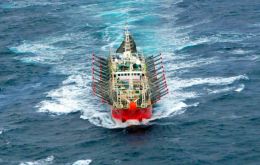
Argentina’s jigger lobby has managed to anticipate the beginning of the squid season, advancing the date to next 9 January. According to reports from Mar del Plata, the anticipation of the Argentine squid season 2026 was again adjusted following a letter sent by the Chamber of Argentine Jiggers, CAPA, requesting a review of the Federal Fisheries Council, CFP, Act 33/2025 linked to the beginning of operations south of South latitude parallel 44.
-
Sunday, December 7th 2025 - 18:27 UTC
South Georgia’s changing ocean currents affect the rich marine ecosystem
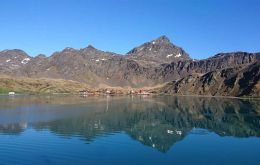
Scientists have uncovered how changing ocean currents in South Georgia's fjords could affect the survival of young mackerel icefish. The species is a key component of the island's rich marine ecosystem and is an important prey species for seals and penguins.
-
Thursday, November 27th 2025 - 08:30 UTC
Fortuna completes acquisition of the Ocean Fish Group

The Board of Fortuna Ltd are delighted to announce the acquisition of the Ocean Fish Group, as of 25th November 2025. Ownership of the Company is a further step towards growing Fortuna’s wider fishing and maritime-related interests.
